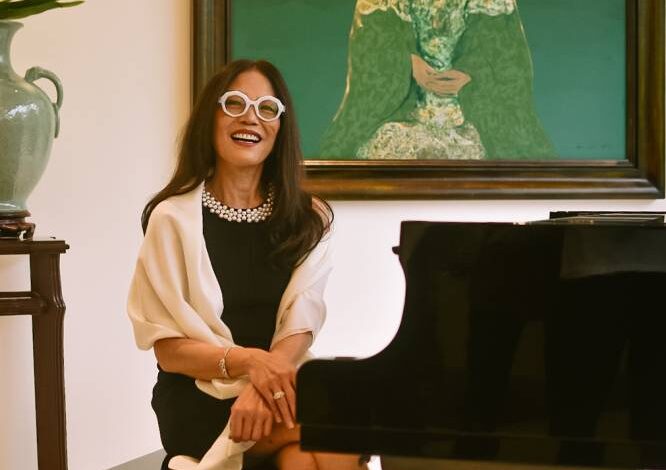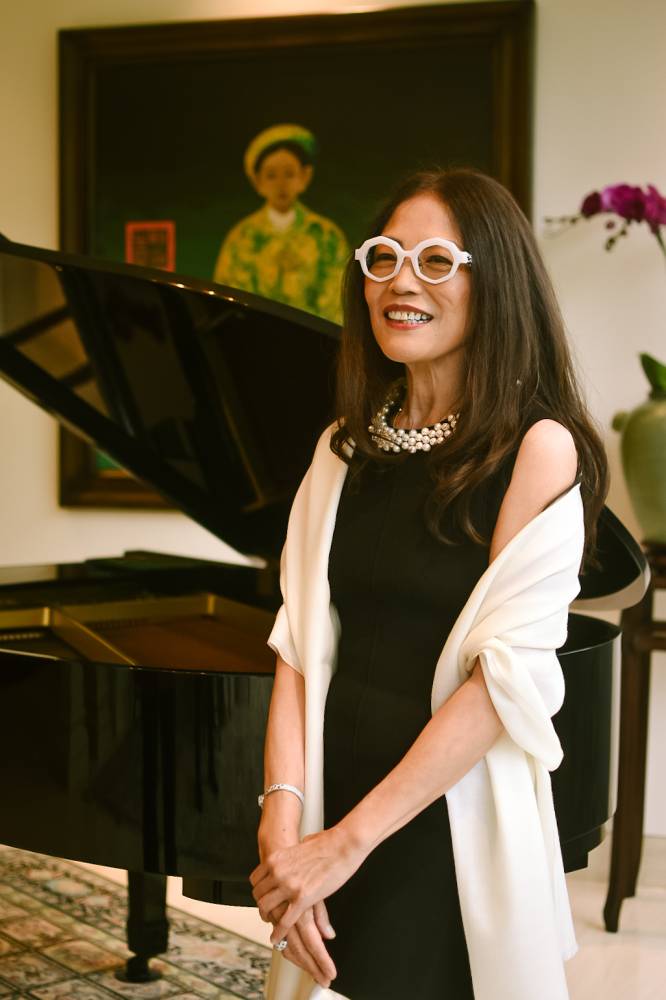10 lessons to learn from Filipino global pianist Cecile Licad

I’d like to play on the top of the rice terraces,” Cecile Licad exclaims in a room full of art and culture writers, seemingly in jest, but completely earnest. It’s the kind of quote that captures her at once: ground-breaking, fearless, and rooted in home even as her career has taken her across the world.
Licad has been called “a pianist’s pianist,” a phrase that captures both her technical brilliance and the uncompromising seriousness of her decades-long practice as one of the most celebrated pianists of her generation.
“Like a missionary”
She was a young child—about seven or eight—when she first appeared with an orchestra in Manila, and barely out of her teens when she became the first Filipino to win the Leventritt Gold Medal, an award that had once vaulted Van Cliburn to international fame.
In the decades since, she has built a career less defined by celebrity than by a rare intensity—one that prizes substance and discipline over glossy display. At Carnegie Hall last winter, critics praised her playing as “less about pianistic display than about ideas and meaning,” a line that could serve as shorthand for her life as one of the Philippines’ most iconic concert pianists.
Yet to think of Licad solely in terms of accolades is to miss her complexity and nuance as an artist and a human being. She is a perfectionist who still delights in play, a relentless worker who has learned—at her son Otavio’s urging—to “chill out.” That balance between rigor and release, seriousness and humor, is part of what makes her artistry and persona so distinctive.
It also explains her sense of mission. She describes herself as someone who is “like a missionary” when performing in the provinces of her homeland, where she brings music to audiences who may be hearing Chopin or Saint-Saëns for the first time.
For her, performance is not only a showcase of a pianist’s artistry and virtuosity but also a potent space for shared cultural experiences to flourish.

A strong fighting spirit
Asked about the secret to her longevity, Licad is passionate and firm: It is her “fighting spirit” that insists on carrying on, even when her body gives up on her and her mind resists. That stubborn energy, she suggests, is what has allowed her to thrive despite the punishing demands of a pianist’s life. “Even if my hands failed me, I go on,” Licad was quick to share.
For all the international acclaim, Licad holds fast to the imprint of home. “I’m Filipino. That’s how I interpret the music,” she says. It is both a matter of roots and of ethos: an openness to transformation, a refusal to abandon language, taste, and community, and a belief that even the most difficult or unfamiliar piece can be made one’s own.
That sense of rootedness came into sharp focus at a recent gathering with art and culture writers. Anton Tantoco Huang—the eldest son of the late Zenaida “Nedy” Tantoco, retail magnate, patron of the arts, and longtime supporter of Licad—posed a question: What had been her most memorable performance in the Philippines?
Licad didn’t cite a venue or a concert. Instead, she paid tribute to Nedy.
“The last years, it was with your mom, definitely,” she says. “She was always encouraging me. Whenever I fell silent, she would say, ‘You’d better perform.’ She reminded me, ‘You cannot stop for a long time. You have to keep on playing here.’ Your mom was a real pusher—in the best sense.”
What follows is Licad in her own words—candid, unsparing, humorous, and wry—reflecting on a lifetime at the piano and the stubborn vitality that sustains her. Here are 10 life and leadership lessons the next generation can take from her story.
1. Find joy in building new relationships
“I’d love to meet people now. I’m not like when I was a kid. It’s just more fun, you know, life is short. I’m interested in many different personalities of people because I respect everybody’s colorful personalities. Everybody has their special thing, you know? Something I used to not know because I was always just stuck at the piano.”
2. Balance excellence and enjoyment
“I don’t practice just for the sake of working scales, like a good student. I practice because either I want to make this passage clearer to the listeners or, first of all, [it’s for] me. I like to enjoy myself.”
3. Make practice your form of mental preparation
“[I mentally prepare myself] by working all the time. That’s what I do. I practice every day.”
4. Grab the opportunity to learn difficult things
“[Part of my repertoire is] the Chopin concerto I played when I was 11 years old. That’s when I first left the country, and I don’t know if I should mention it, but I remember [that] they had auditions for the Manila Symphony, and one jury member said, ‘Why [did] the teacher teach her that [piece]? It’s like putting red lipstick on a little girl.’
But you know what? I’m so glad that I studied it. Once you can learn really difficult things, [do it]! Because now it’s like almost part of my body, you know, the [difficult] pieces.”
5. There is power in “owning” your work
“Every piece that I present to the public, I have to enjoy it even if I [initially] didn’t. Even if I don’t like a piece [in the beginning], I pretend that it’s the most incredible piece, and then, I can transform it. I don’t know [what my least favorite piece is] yet because I’ve made them all into ‘my pieces.’”
6. Embrace your Filipino identity
“I’m Filipino. That’s how I interpret the music. And maybe that’s what makes it different because of where I’m from. It’s how I transmit music [that makes my practice as a Filipino pianist].
I never forgot Tagalog, and I’ve been in America for a long time. You know, some people would travel, and it’s like, ‘Oh, they just speak English and don’t understand Tagalog anymore.’”
7. Fighting spirit produces staying power
“It is called ‘fighting spirit.’ Because during times when I am down, I always know how to go back up. That’s my secret to longevity. I am not a loser.”
8. Even “unusual” music can expand your soul
“[Even if] I’ve been recording ‘unusual’ stuff, it’s still classical. It’s like going to the flea market and finding gems [that are no longer being played].
If you’re not very good, you’re not going to manage to make it sound good. I mean, I sound arrogant, but that’s the way it is. It’s a lot of work.
[Like] American Nocturnes. It’s just beautiful stuff that you’re not used to hearing. But people should train themselves to hear other things because it opens their minds, souls.”9. Harness chaos to learn focus
“I was trained when I was seven years old. My mother used to [tell] my brothers [to purposely be] so noisy while I was practicing. She said, ‘Bother her! You know, the more you bother her, the better she will be!’”
10. Tap into the power of intermittent fasting
“I’ve always done intermittent fasting. One time, I actually didn’t eat the whole day, and [that was when] I played the best.
I played the piano concerto in Germany, and I was so pissed at someone. Somebody hurt me personally, it was something really bad, and it was one of the best concerts I did… without eating anything because I couldn’t eat. And I thought I would be really weak. It’s the way I am. But people are different.”





















